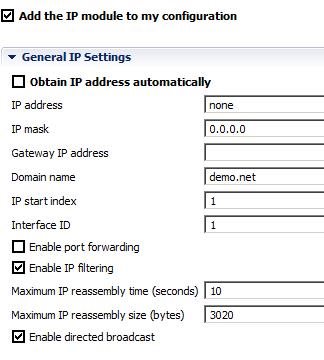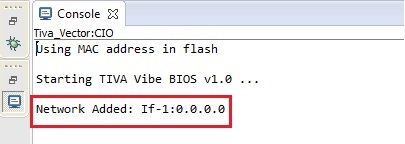Part Number: TM4C1294NCPDT
Hi.
I'm using TM4C1294NCPDT with TI-RTOS and NDK.
How can I set Static IP address to "0.0.0.0"?
When I set any IP address(e.g. "0.0.0.1") except of "0.0.0.0" I get:
and my device send UDP packets to network.
But if I set "0.0.0.0", I get:
and my device doesn't send any packets.
Thanks in advance.






